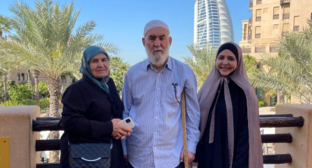27 October 2010, 23:00
Week in the Caucasus: review of main events of October 18-24
Northern Caucasus is staggered by explosions; Southern Caucasus is shocked by earthquakes; Kalmykia gets used to new leadership; residents of Southern Russia undergo census, - look these and other events in the review of the week of October 18-24, 2010, prepared by the "Caucasian Knot".
Explosions in Northern Caucasus continue
Northern Caucasus remains the least quiet region of Russia, which is emphasized by an endless range of terror acts. Thus, last week an explosion at the militia exit checkpoint to the village of Ordzhonikidzevskaya, Sunzha District of Ingushetia, injuring five persons. The explosion occurred on October 24 at 11:30 a.m. Moscow time under a tree in the intersection of Gubina and Sainaroev Streets, a few meters away from a police checkpoint. As a result of the explosion, four law enforcers and one local woman were wounded.
A day earlier, on October 23, a resonant terror act was committed in Dagestan. A suicide bomber blew himself up in Khasavyurt killing a militiaman and injuring from 8 to 12 other persons, as reported by different sources.
According to some experts, this self-explosion is another signal that the underground is not going to agree with normalization of the situation in the Caucasus, which was stated by Russian Interior Minister Rashid Nurgaliev during his visit to Makhachkala on October 18. Analysts say that the terror act on October 23 reveals a trend towards the growth of "suicidal attacks", typical for the Taliban in Afghanistan and traced from the attack on the family village of the head of Chechnya in August this year.
Southern Caucasus is quaked
A whole series of earthquakes was recorded last week in the republics of Southern Caucasus. On October 22, a series of earthquakes was fixed to the southeast of the Astara District of Azerbaijan - in the Caspian Sea in the territory of Iran.
According to the Republic's Seismology Service of the National Academy of Sciences of Azerbaijan, at 8:20 a.m. local time, an earthquake with magnitude of 4.60 happened 33 km to the southeast of the Astara District of Azerbaijan. The quake focus was in the Caspian Sea at the depth of 28 km. Later, at 9:18 a.m. local time, another earthquake with magnitude of 4.20 was registered 55 km to the southeast of the Astara District. This time its focus was in the Caspian Sea at the depth of 22 km. The quakes caused no victims or destructions.
Besides, on October 23 the fifth within the current month earthquake occurred in Georgia. Small quakes were recorded at 12:50 a.m. Tbilisi time. According to the Centre for Seismic Monitoring of Georgia, the quake focus was 25 km off Tbilisi, 5 km off the town of Bolnisi, near the village of Akaurta.
The magnitude of the shocks was 3.1 points. The earthquake was felt by people but did not cause any damage to buildings in settlements adjacent to the epicentre.
Kalmykia under new leader
One of last week's significant political events in Southern Russia was the entry of Alexei Orlov on October 24 into the post of the head of Kalmykia, who was endowed with the respective powers by the People's Hural of the Republic of Kalmykia.
On the same day it became known that the former president of Kalmykia Kirsan Ilyumzhinov declined Mr Orlov's offer to head the government.
Census will update the ethnic map of Southern Russia, experts hope
The last week in the south of Russia, like elsewhere in the country, was marked by the 2010 all-Russian census. In general, the heads of territorial departments of the Federal State Statistics Service ("Rosstat") were positive in assessing the course of census in the south of the country. The process was active in the Krasnodar Territory, Adygea, Ingushetia, Chechnya, Kabardino-Balkaria, Karachay-Cherkessia and other southern regions of Russia. The work of census takers was difficult only in the Tuapse District of the Krasnodar Territory in the aftermath of the recent flood.
The census topic was broadly discussed by various experts. In particular, many of them express the opinion that the results of the all-Russian census of the population will have a great influence on the ethnic map of Southern Russia in the beginning of the 21st century; however, accurate data is unlikely because of huge variability in the names of many ethnic groups and formations.





Комментирование через Кавказский узел